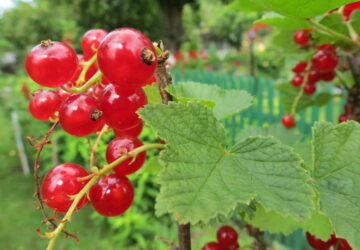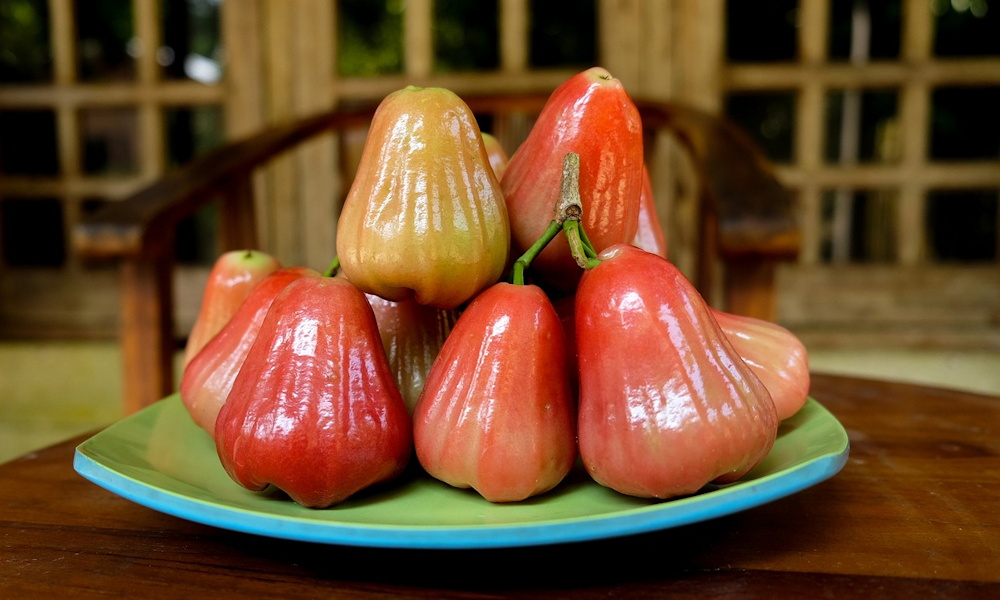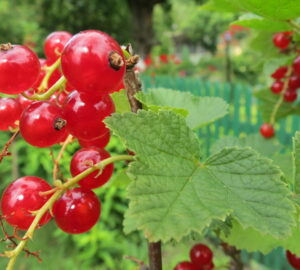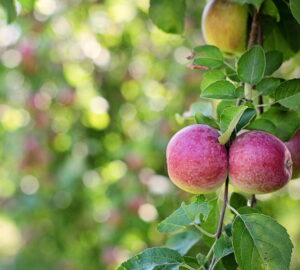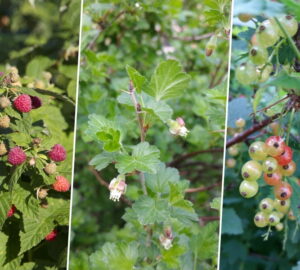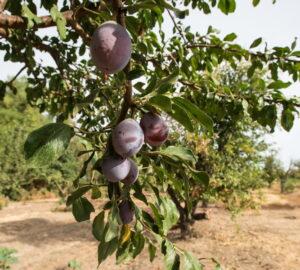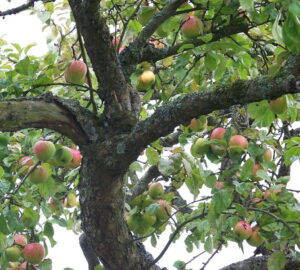If you’ve ever strolled through a tropical garden and noticed a tree with glossy leaves and bell-shaped fruit that resembles a rose, you might have encountered the rose apple, also known as the watery rose apple or Syzygium aqueum. This tropical delight is cherished for its unique appearance, mild flavor and versatility in culinary applications. Let’s dive into the origins, characteristics, cultivation and fascinating facts about this intriguing plant.
Origin and Naming
Syzygium aqueum is native to Southeast Asia, with its roots stretching from Indonesia and Malaysia to the Philippines and beyond. The name “rose apple” can be a bit misleading, as it has little to do with roses or apples in the conventional sense. It’s likely derived from the rose-like aroma some varieties emit when fully ripe, as well as the apple-like appearance of its fruit.
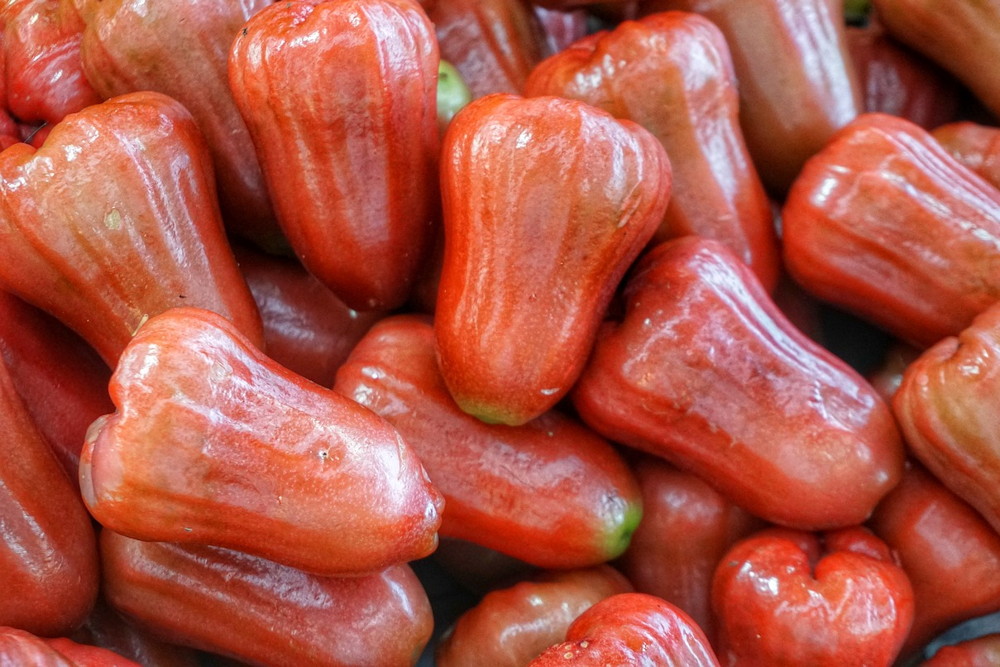
Plant Characteristics
The rose apple tree can grow up to 12 meters in height, but it is often maintained at a smaller size in gardens and orchards for easier harvesting. It has glossy, dark green leaves that are oblong and lanceolate, providing a lush, dense canopy. The tree blooms with large, fragrant white or pale pink flowers that attract pollinators such as bees.
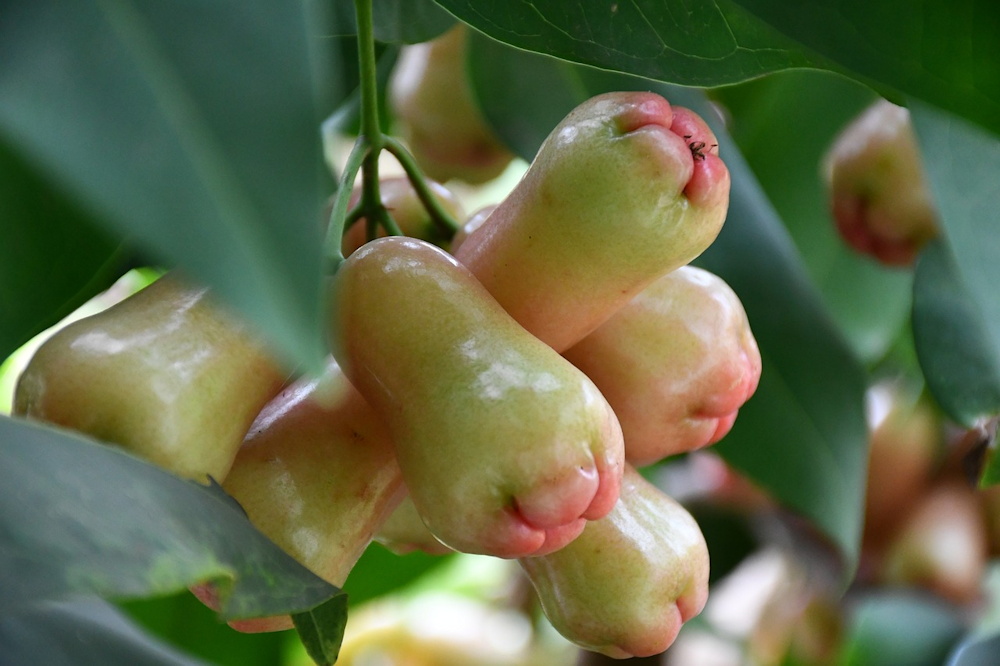
The Fruit
The fruit of the rose apple is what sets it apart. It has a distinctive bell shape with a waxy, thin skin that ranges in color from light green to pale yellow or pink, depending on the variety. The flesh is crisp, juicy and slightly sweet with a hint of tartness. The seed is typically small and easy to remove, making it a favorite for snacking and adding to salads.
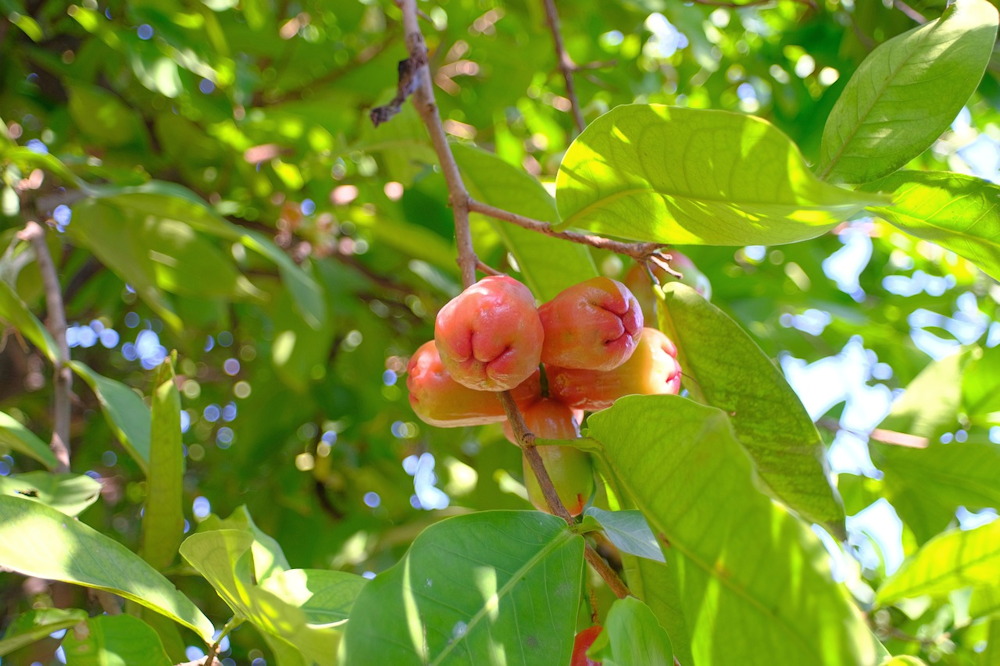
Growing Conditions
If you’re considering growing a rose apple tree in your garden, it’s essential to replicate its native environment. The plant thrives in warm, tropical climates with high humidity and consistent rainfall. It prefers well-drained soil with plenty of organic matter. The tree should be planted in full sun to partial shade and requires regular watering, especially during dry spells. Protection from strong winds is also recommended, as the branches can be brittle.
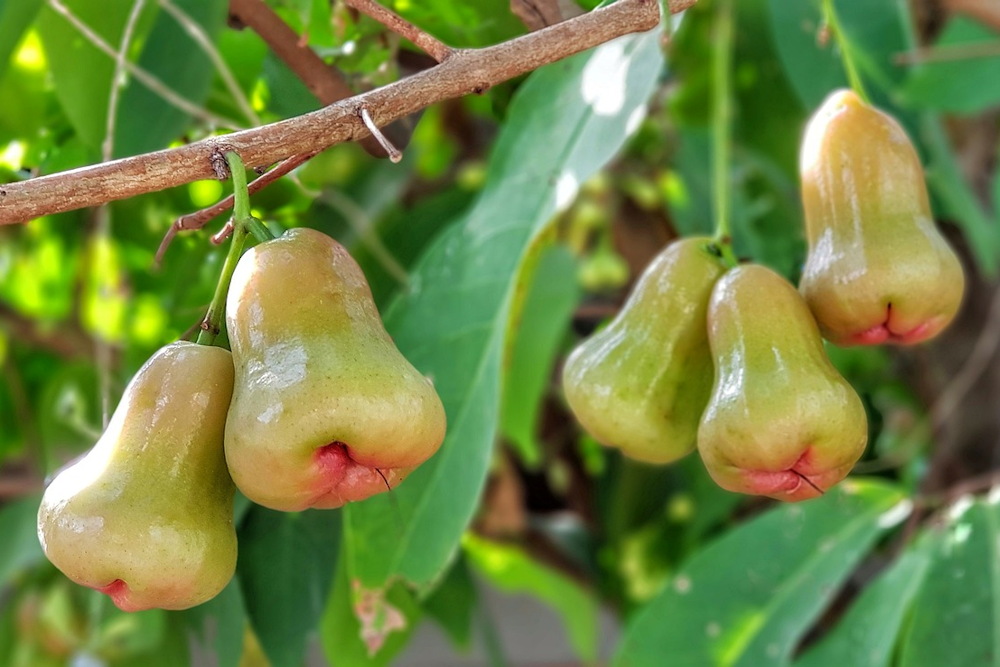
To ensure successful growth, plant the rose apple tree in areas where the temperature remains mild year-round. In cooler regions, it’s possible to grow rose apple trees in large pots or containers that can be moved indoors during colder weather. This approach offers flexibility and protection against unexpected cold snaps.
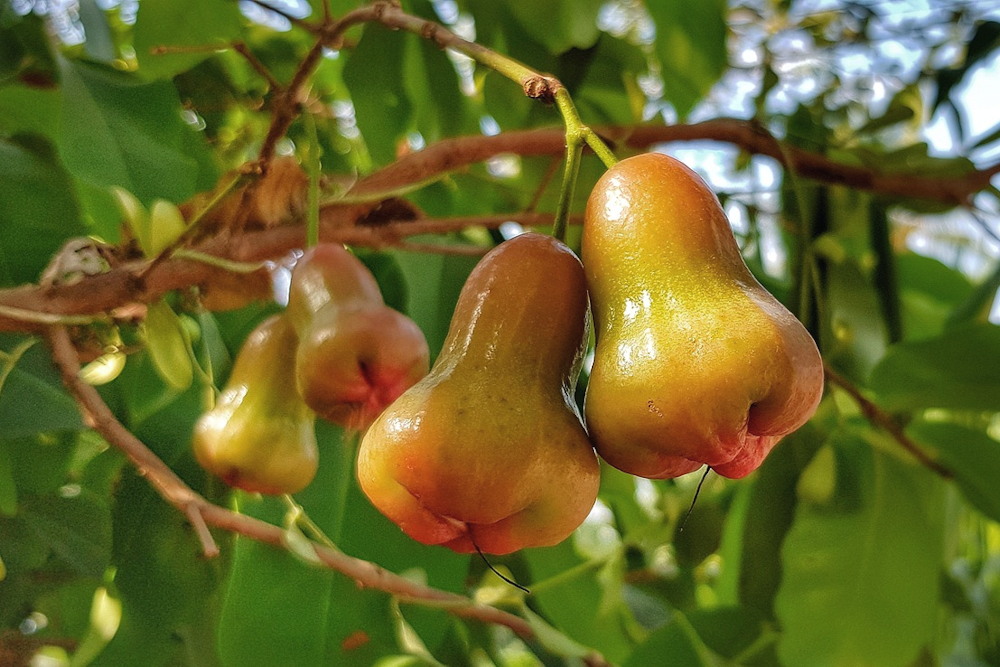
How to Obtain the Plant
Rose apple plants are commonly available in nurseries and garden centers in tropical and subtropical regions. You can also find seeds online or through specialized plant suppliers. If starting from seed, be patient, as it can take several years for the tree to reach maturity and produce fruit.
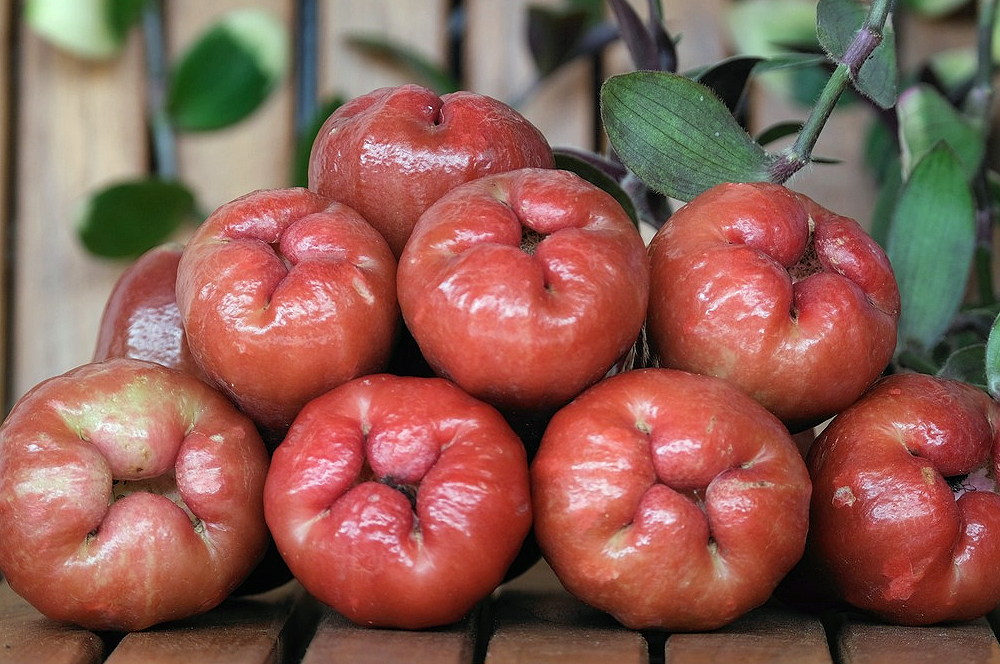
Interesting Facts
To round out your knowledge of the rose apple, here are some fascinating facts about this unique plant:
- Medicinal Uses: In traditional medicine, parts of the rose apple tree, like the bark and leaves, have been used to treat various ailments such as diarrhea, fever and respiratory issues.
- Versatile Culinary Applications: The fruit can be eaten fresh, used in jams and jellies, or even pickled. In some cultures, it’s used in savory dishes like curries and salads.
- Low-Calorie Treat: The rose apple is a low-calorie fruit, making it an excellent choice for those watching their weight or looking for healthy snacks.
- Pollinator Friendly: The large, fragrant flowers attract bees and other pollinators, making it a beneficial addition to any garden focused on supporting local ecosystems.
- Ornamental Value: With its glossy leaves, attractive flowers and unique fruit, the rose apple tree can be a stunning ornamental addition to a garden or landscape.
- Drought Tolerance: Once established, rose apple trees are relatively drought-tolerant, making them a hardy choice for regions with occasional dry periods.
In conclusion, the rose apple, or Syzygium aqueum, is a delightful addition to any tropical or subtropical garden. Its unique appearance, versatile fruit and numerous benefits make it a favorite among gardeners and fruit enthusiasts. Whether you’re growing it for its fruit or as an ornamental tree, the rose apple is sure to bring beauty and enjoyment to your garden.
